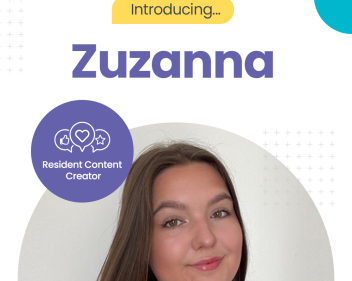Blog

Your Guide To Catching Some Well-Deserved Zzz's
How much sleep did you get last night?
If it was anything less than 7 hours you’re probably not catching enough Zzz’s. Sleep was one of the necessities of health that went completely by the wayside when I first started uni, and it was because of a few things:
- Going out a lot at night
- Playing video games until 3am
- Staying up late to do assignments
- Staying up late because I could
One of the things you’ll notice right away when you move out is that no one is standing there telling you to go to bed. Your parents can’t pester you to get some sleep and you’re pretty much at your leisure to be awake at any hour that you like. This is awesome at first, but it can get a bit out of hand.
If you’re one of those people who gets into a 72-hour Netflix binge or becomes fiercely competitive in COD at 4am, sleep might not be the first thing on your mind. But trust me, your body notices, even if your mind doesn’t.
How much sleep do we really need?
The Sleep Foundation says that the ‘healthy’ amount of sleep for 18-24 year-olds is roughly 7-9 hours of sleep. That means going to bed at 10pm and waking up at 7am – or a variation of that. If you happen to be a nurse or working as a bartender and your hours are super out of whack, that’s cool, just make sure you’re clocking in enough sleep in your spare hours!
What is preventing us from sleep?
Heaps of factors can impact the amount of sleep you get during the week. If you’re a coffee-lover, caffeine can impact negatively on sleep and can even make our sleep lighter, meaning we don’t get the deep sleep that our body needs. If you eat at inconsistent times your body clock can be destabilized, which can impact when your brain thinks it needs sleep. As difficult as it might seem, staring at your phone until 2am doesn’t help with convincing the brain that it’s time to sleep – try to put your devices down at least one hour before you turn in, that way your brain isn’t so ‘on’ when you lie down.
How can I improve my sleep?
A big one right off the bat is reducing the amount of caffeine you eat and drink during the day. Try not to consume anything with caffeine at least 4 hours before you want to go to bed. The same goes for alcohol and nicotine. Avoiding all of these substances will do you a world of good if you want to improve your sleep patterns.
Why is this a big deal?
Sleep is one of the great loves of my life, and the busier you get with uni, work and everything in between, you’ll start to see why. These are just a few of the benefits of good sleep:
- Improving memory – Your mind is surprisingly busy when you sleep. During sleep you can strengthen memories or ‘practice’ skills learned while awake (this is called consolidation). In other words, if you get a decent sleep, your brain will retain more information when you are learning new things during the day.
- It can curb inflammation – inflammation is linked to heart disease, stroke, diabetes, arthritis and premature aging. Research shows that people who get fewer hours of sleep (six hours or less) have higher blood levels of inflammatory proteins than people who get more sleep.
- It spurs creativity – if you’ve ever had an amazing night of sleep, you’ll notice how motivated and switched on you feel. This can really boost your creativity and clear thinking.
- Sharpen your attention – there is absolutely no point in going to that 9am lecture if you haven’t had a decent sleep. You won’t listen, you’ll yawn all the way through and you may as well have slept in and watched it later online.
I could go on, and on, and on about the benefits for sleep – but one of the things about being a first-year uni student is that you’ll learn a lot of stuff the hard way. Then you’ll be just as in love with sleep as I am
See you next week,
Amy.
Related blog posts
10 things to do at university as a non-drinker
Posted at 21 August 2023 in , Village Life, Health & WellbeingOne of our student content creators Zuzanna, gives us her top 10 things to do at uni that don't involve alcohol.
Try These Six Mindful Activities
Posted at 05 May 2023 in , Health & WellbeingCheck out #ResidentContentCreator Zuzanna's easy mindful activities to help you during the exam period!
Money-Saving Hacks for Students
Posted at 20 February 2023 in , Village Life, Health & WellbeingLife on a student budget is often challenging, but it doesn’t have to be. Here are our top tips for saving money as a student.


